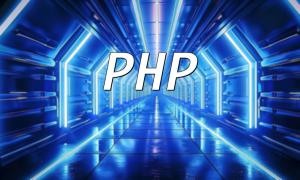PHP is one of the most popular scripting languages, with around 75% of websites worldwide using PHP, including many multi-user e-commerce systems. PHP's widespread use can be attributed to its powerful features, open-source nature, and the strong support from its community, making it an ideal choice for developing e-commerce platforms.
PHP is known for its simple syntax, excellent compatibility, and ease of integration with other technologies. It also offers high performance and strong security, ensuring the stable operation of e-commerce systems.
Thus, choosing PHP for developing multi-user e-commerce systems is a highly sensible decision.
PHP comes with several mature development frameworks and an extensive collection of libraries, significantly speeding up the development process for e-commerce systems. Here are a few commonly used PHP frameworks:
Laravel: One of the most popular PHP frameworks, it provides a powerful routing system, template engine, database migration tools, and queue management.
Symfony: Known for its exceptional security features and rapid development capabilities, Symfony is well-suited for building large-scale e-commerce platforms.
CakePHP: This framework offers a powerful ORM and fast development tools, allowing developers to quickly build core functionalities for e-commerce systems.
Using these frameworks and libraries can greatly simplify the development process while ensuring the e-commerce system’s efficiency and stability.
PHP has been widely used in the e-commerce field, and there are many successful multi-user e-commerce platforms built with PHP.
For example, WooCommerce is an e-commerce plugin built on WordPress, allowing you to add e-commerce functionality to an existing website and manage it through the WordPress dashboard.
Another example is Magento, a powerful open-source e-commerce solution that meets the needs of multi-user e-commerce systems of all sizes. Magento offers a comprehensive set of features, including product catalogs, order management, payment integration, and customer management.
These successful cases further demonstrate that PHP is an excellent tool for developing e-commerce platforms.
The open-source PHP community has created a vast range of plugins and extensions that enhance the functionality of e-commerce systems. Common plugins include:
Payment Extensions: PHP payment extensions (e.g., Stripe, PayPal, Braintree) make it easy to integrate secure payment options into a multi-user e-commerce system.
Email Extensions: PHP email extensions (e.g., SwiftMailer, PHPMailer) enable system administrators to send user notifications and marketing emails with ease.
Social Media Plugins: PHP social media plugins (e.g., Facebook, Twitter) help increase the visibility of the e-commerce system and drive more traffic and sales opportunities.
These plugins and extensions not only enhance the functionality of the e-commerce system but also improve the overall shopping experience for customers.
PHP, as a modern programming language, can easily integrate artificial intelligence (AI) and big data technologies, further enhancing the intelligence of e-commerce systems. For example:
Natural Language Processing (NLP): Using PHP NLP libraries, e-commerce systems can analyze user search behavior more accurately, offering better product recommendations and improving user experience.
Machine Learning: By utilizing PHP machine learning libraries, developers can build personalized recommendation systems to suggest products that align with a user’s preferences.
Big Data Analysis: PHP is capable of processing and analyzing large volumes of data, allowing e-commerce administrators to gain valuable insights into user behavior and make data-driven decisions.
The integration of these technologies makes multi-user e-commerce systems more intelligent, enhancing user experiences and driving more sales.
In conclusion, PHP is an excellent choice for developing multi-user e-commerce systems. It offers high performance and security, features powerful development frameworks and libraries, and has many successful e-commerce platform examples. Furthermore, PHP can easily integrate big data analysis and AI technologies to optimize the system’s functionality and user experience.









